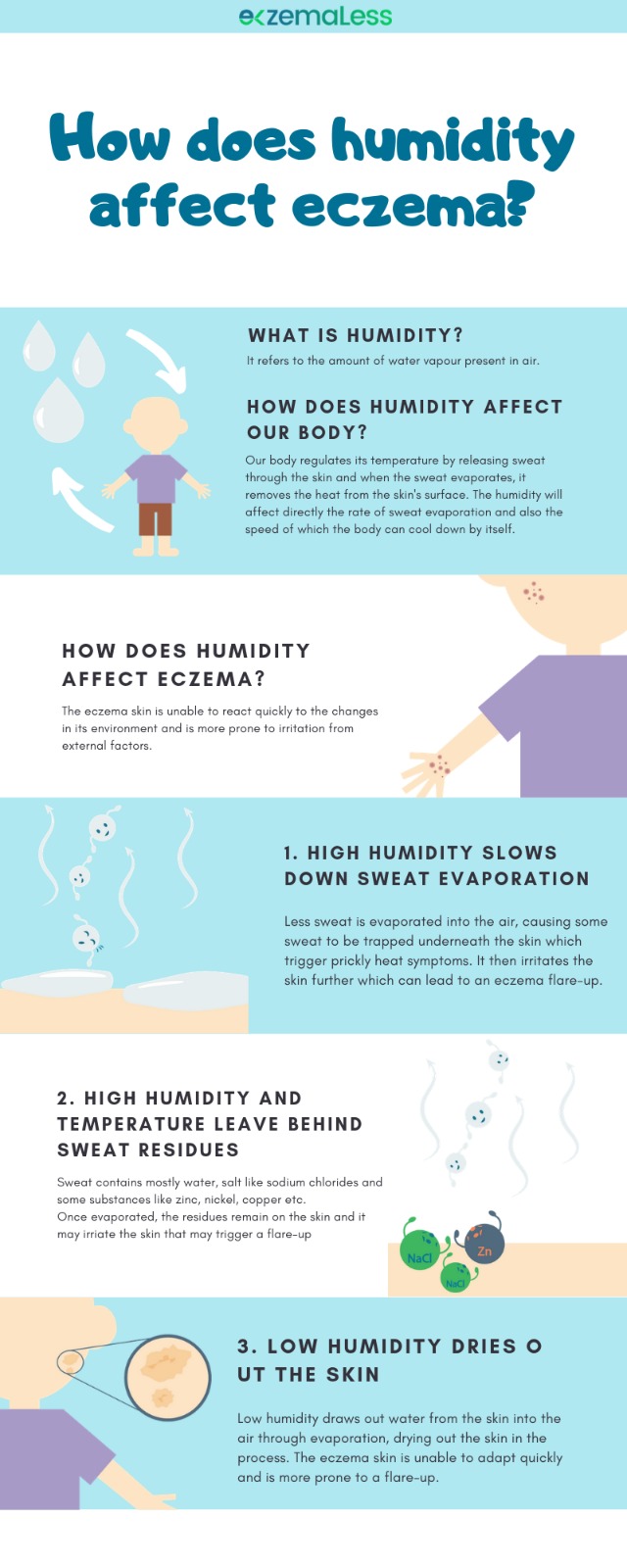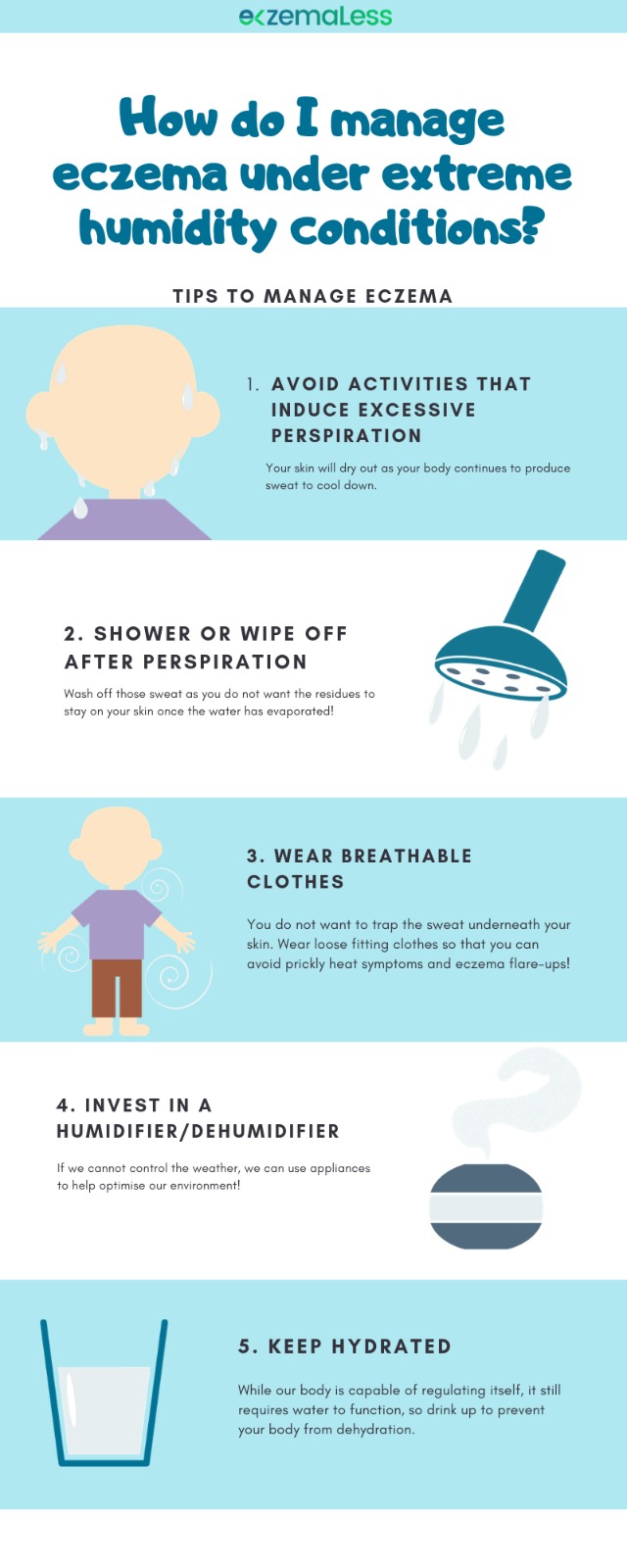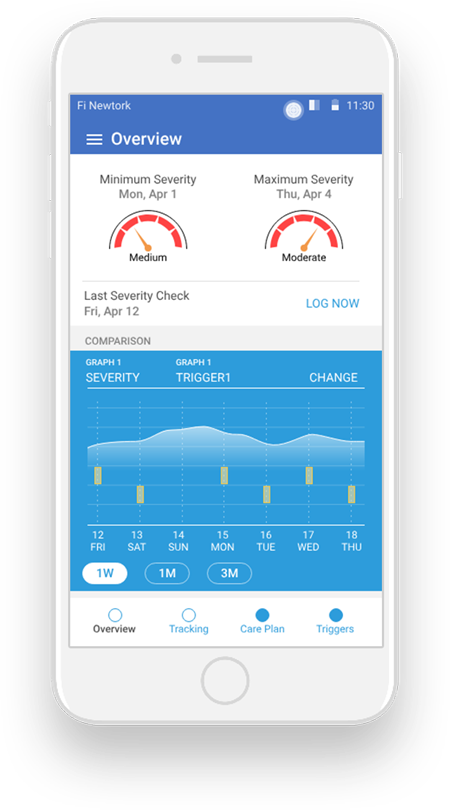High Humidity a warning alarm for Eczema

High Humidity and Eczema
People suffering from eczema are susceptible to extreme weather conditions. Skin affected with Atopic Dermatitis loses its capability of adapting to different conditions with a poor tolerance for extreme weather. Humidity is one of the vital factors in the environment, to which skin reacts almost immediately and it plays a major role in how your body handles eczema. Humidity in its extreme, no matter if it is low or high is usually a problem for Eczema. Low humidity dries the skin, especially during winter months whereas high humidity in hot temperatures may result in prickly heat-type symptoms, making eczema-prone skin itchier and more irritated resulting in a flare-up.



In hot and humid weather, the natural defense mechanism of the skin comes into action. To tackle the heat and keep body temperature under control, skin perspires releasing sweat. The level of sweating differs from person to person and also depends upon the extremity of the temperature. As the sweat mostly consists of water it gets evaporated cooling the body. However, sweat also consists of salts such as sodium chloride and traces of other elements such as zinc, nickel, copper, etc. which remain on the skin leading to irritation on the skin causing eczema to flareup. Moreover, the hot temperature itself can be very irritative for sensitive skin of eczema sufferers worsening the condition and triggering the itch cycle.
How to Handle Excessive humid conditions?



Avoid sweating conditions
Sweating is the leading cause of Eczema Flares in hot and humid conditions. Avoid activities and situations that cause you to sweat a lot. If it is unavoidable than take shower soon after the activity causing you to sweat like a workout, playtime, etc.
Prevent accumulation of sweat
Body parts such as the back of knees and elbows are more prone to flareups because of the accumulating sweat in these areas which takes longer to dry. These areas should be wiped often using smooth wet clothes to avoid further irrigation or start of an itch cycle
Wear breathable clothes
Clothes play a vital role in the management of Eczema. Different types of clothes are suited to different weather. For hot and humid climate, breathable cotton clothes are preferred. Also on hot weather avoid multi-layer clothing so as to prevent your body from heating up as it may cause you to sweat. Clothes made up of polyester, nylon or wool may irritate your skin and can cause an eczema flare.
Maintain comfortable indoor condition
Though you cannot do much about the external climatic condition, you can always control the conditions inside your home by using humidifier/dehumidifier and air conditioner, etc. 50% of relative humidity is ideal to prevent dry skin and to provide comfort for people suffering from Eczema.
Avoid Allergens
Take extra precaution if you suffer from an allergy. Hot temperatures usually tend to aggravate allergies. If you are allergic to pollen always keep a check on the pollen level in the air before you step out of the house and take necessary precautions.
Monitor the temperature
Keep a check on the temperature during daytime and avoid traveling or moving out of your house when the sun’s rays hurt you directly.
Keep yourself hydrated
Stay hydrated from inside to keep your skin moisture intact by consuming a lot of liquids including water, juices and other cold fluids as your body loses water in the form of sweat.
GET IN CONTROL OF YOUR ECZEMA
Use our AI tool to check the severity of Eczema and keep track of your Eczema progress.



